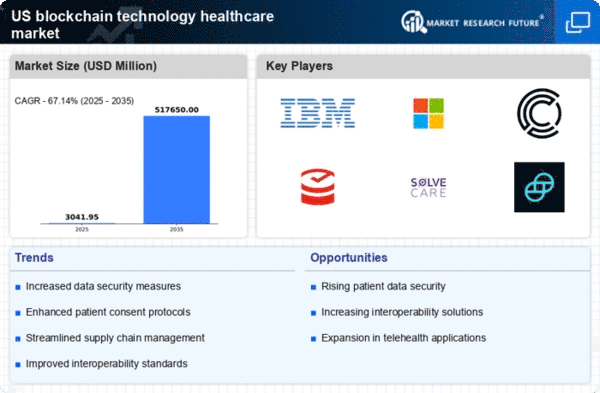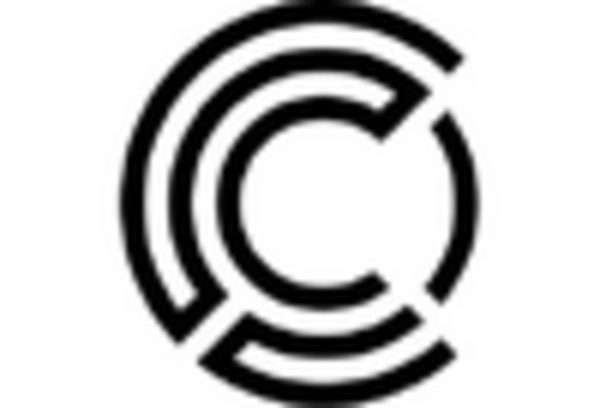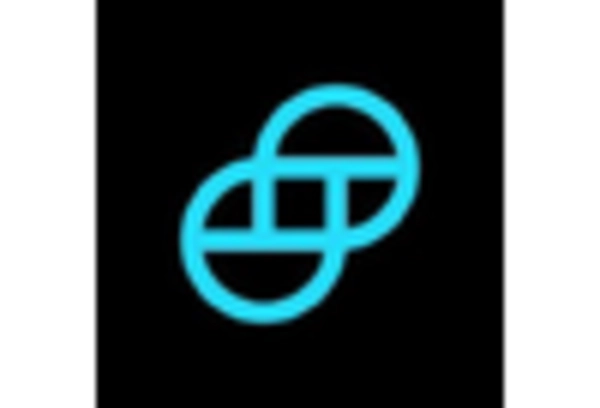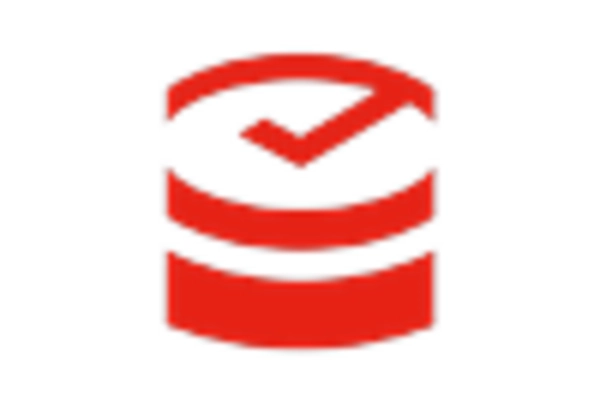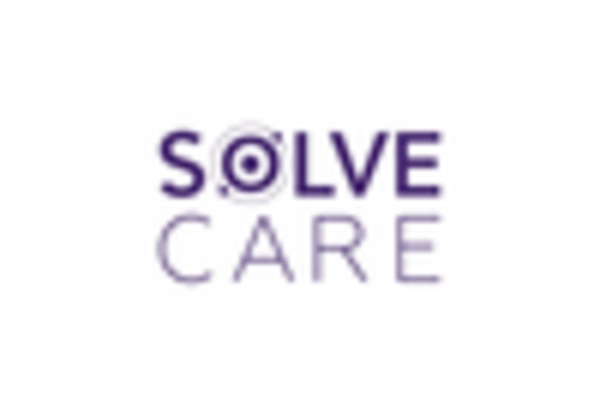Rising Demand for Data Integrity
In the blockchain technology-healthcare market, the demand for data integrity is becoming increasingly critical. Healthcare providers are under pressure to ensure that patient data is accurate, secure, and tamper-proof. Blockchain technology offers a decentralized solution that can enhance data integrity by providing an immutable record of transactions. According to recent studies, approximately 70% of healthcare organizations are exploring blockchain to improve data management practices. This growing recognition of the importance of data integrity is likely to propel investments in blockchain solutions, as organizations seek to mitigate risks associated with data breaches and inaccuracies.
Advancements in Telehealth Services
The blockchain technology-healthcare market is benefiting from advancements in telehealth services, which have become increasingly popular. As telehealth continues to expand, the need for secure and efficient data management solutions is paramount. Blockchain technology can provide a secure framework for telehealth interactions, ensuring that patient data remains confidential and accessible only to authorized parties. This integration is likely to enhance the overall telehealth experience, potentially increasing patient trust and utilization rates. With telehealth projected to grow by over 40% in the coming years, the blockchain technology-healthcare market stands to gain significantly as it supports the secure infrastructure necessary for this evolving landscape.
Cost Reduction in Healthcare Operations
The blockchain technology-healthcare market is poised for growth as organizations seek to reduce operational costs. By streamlining processes such as claims management and patient record keeping, blockchain can significantly lower administrative expenses. Research indicates that implementing blockchain solutions could reduce healthcare operational costs by up to 25%. This potential for cost savings is attracting attention from healthcare executives who are looking for innovative ways to enhance efficiency. As more organizations recognize the financial benefits of blockchain technology, the market is expected to expand rapidly, with a projected compound annual growth rate (CAGR) of 28% over the next five years.
Increased Focus on Patient-Centric Care
The blockchain technology-healthcare market is increasingly aligning with the shift towards patient-centric care. As healthcare systems evolve, there is a growing emphasis on empowering patients with control over their health data. Blockchain technology facilitates secure and transparent access to medical records, enabling patients to share their information with providers as needed. This trend is likely to enhance patient engagement and satisfaction, which are critical components of modern healthcare. With an estimated 60% of patients expressing interest in using blockchain for managing their health data, the market is expected to see substantial growth as healthcare organizations adopt these technologies to meet patient expectations.
Regulatory Support for Blockchain Adoption
The blockchain technology-healthcare market is experiencing a surge in interest due to increasing regulatory support from government agencies. Initiatives aimed at promoting the use of blockchain for secure data sharing and patient privacy are gaining traction. For instance, the Office of the National Coordinator for Health Information Technology (ONC) has been advocating for innovative technologies that enhance data security and interoperability. This regulatory backing is likely to encourage healthcare organizations to invest in blockchain solutions, potentially leading to a market growth rate of over 30% by 2027. As regulations evolve, they may create a more favorable environment for blockchain technology, thereby driving its adoption in the healthcare sector.


